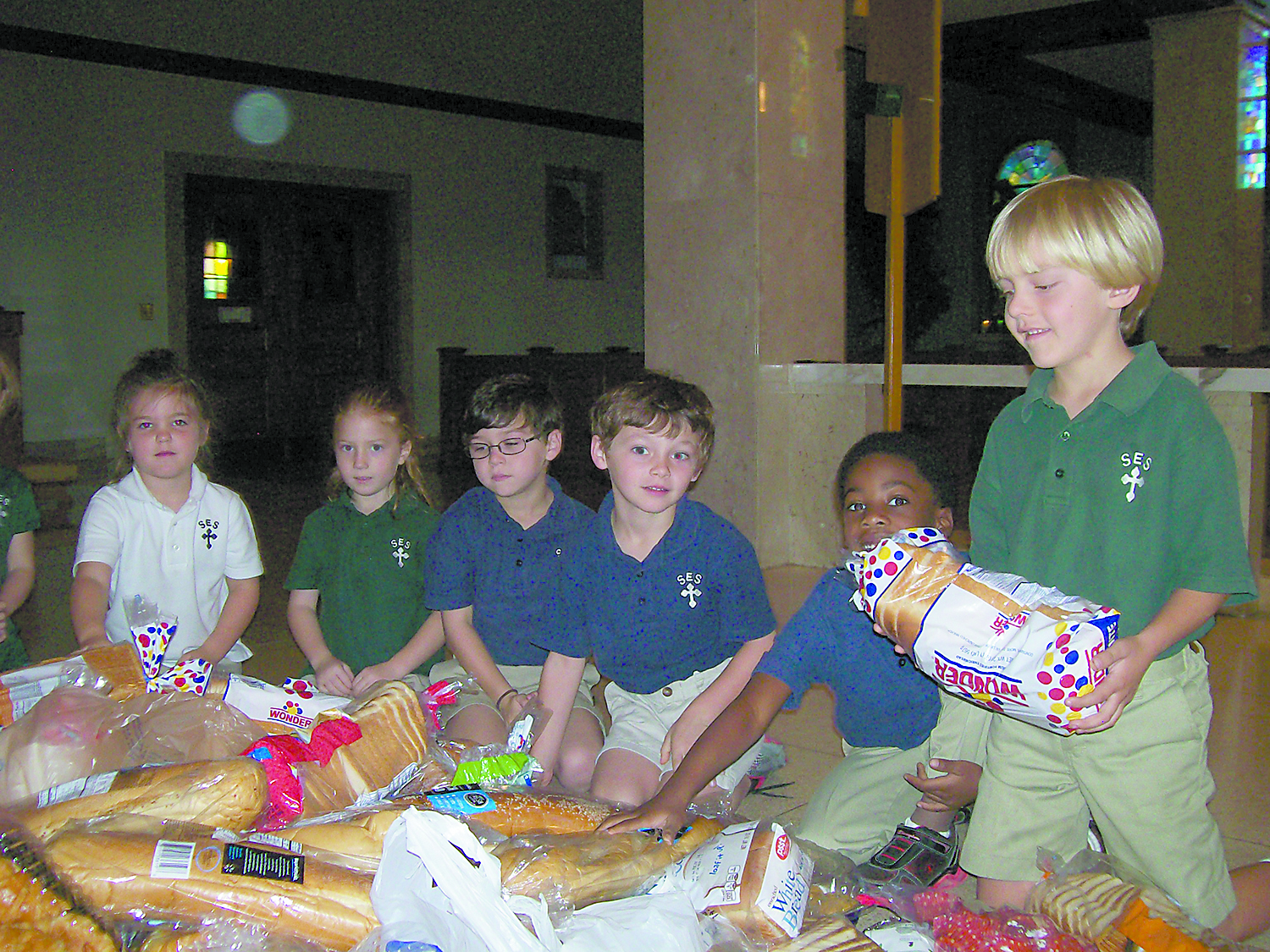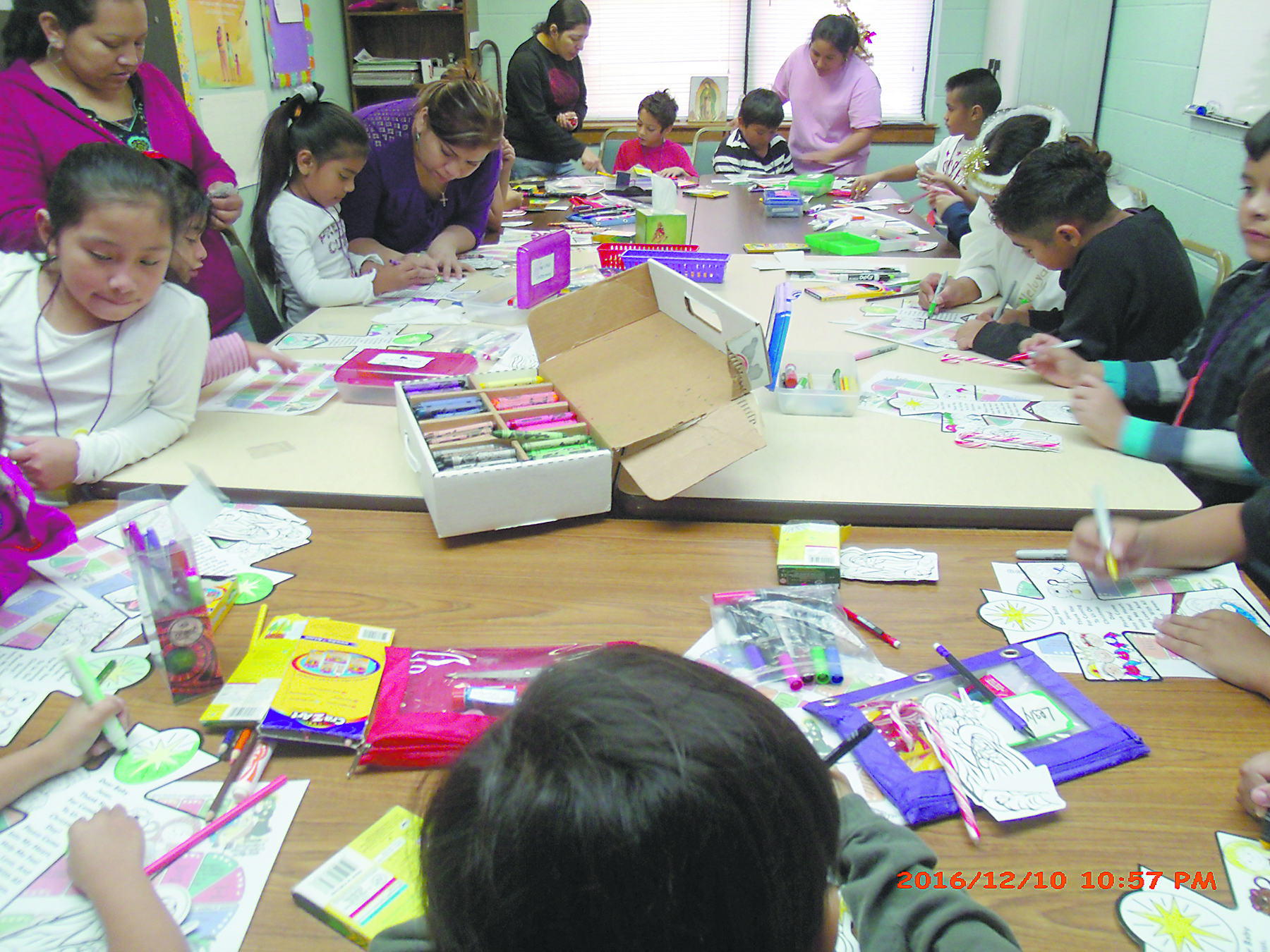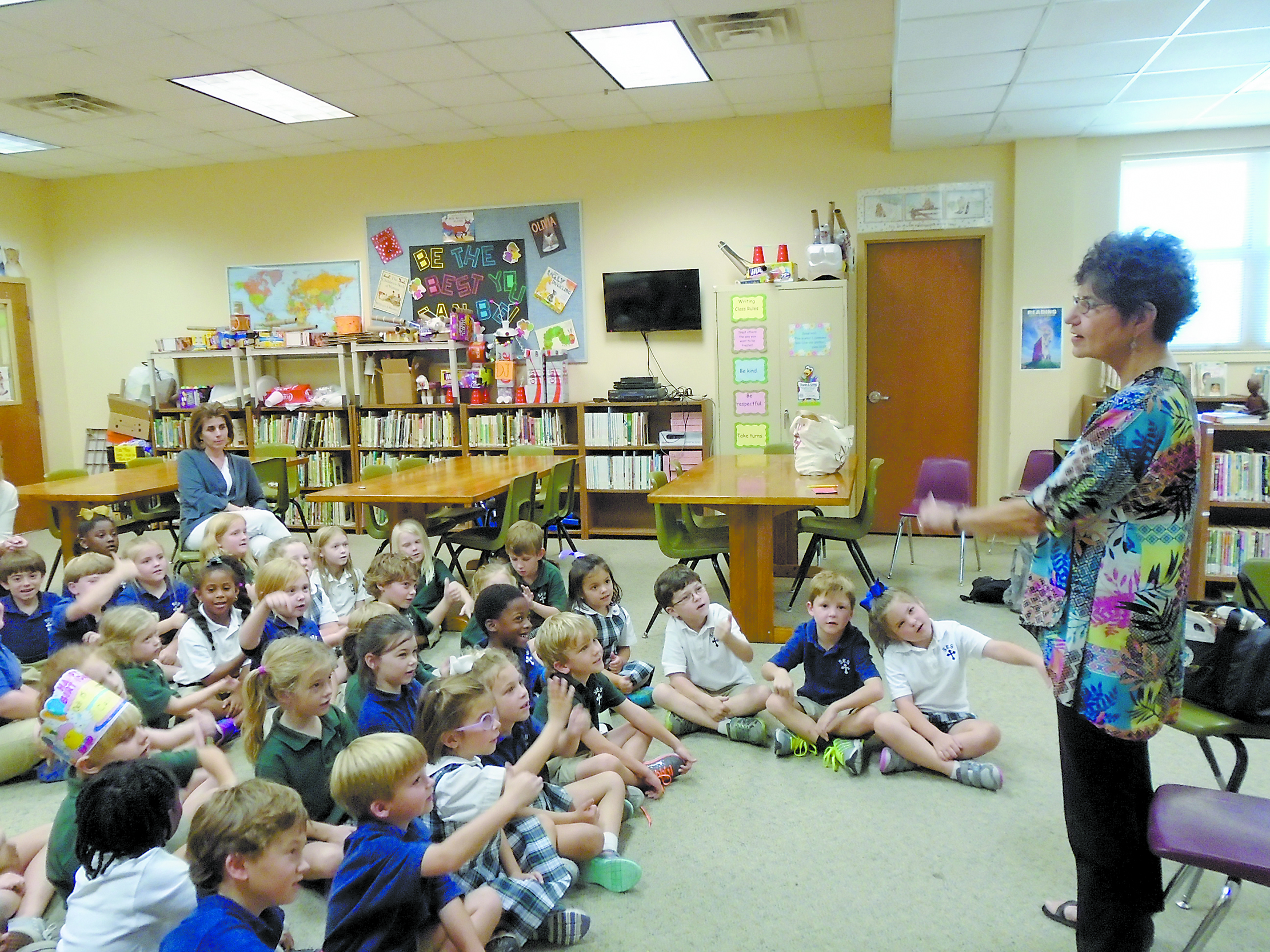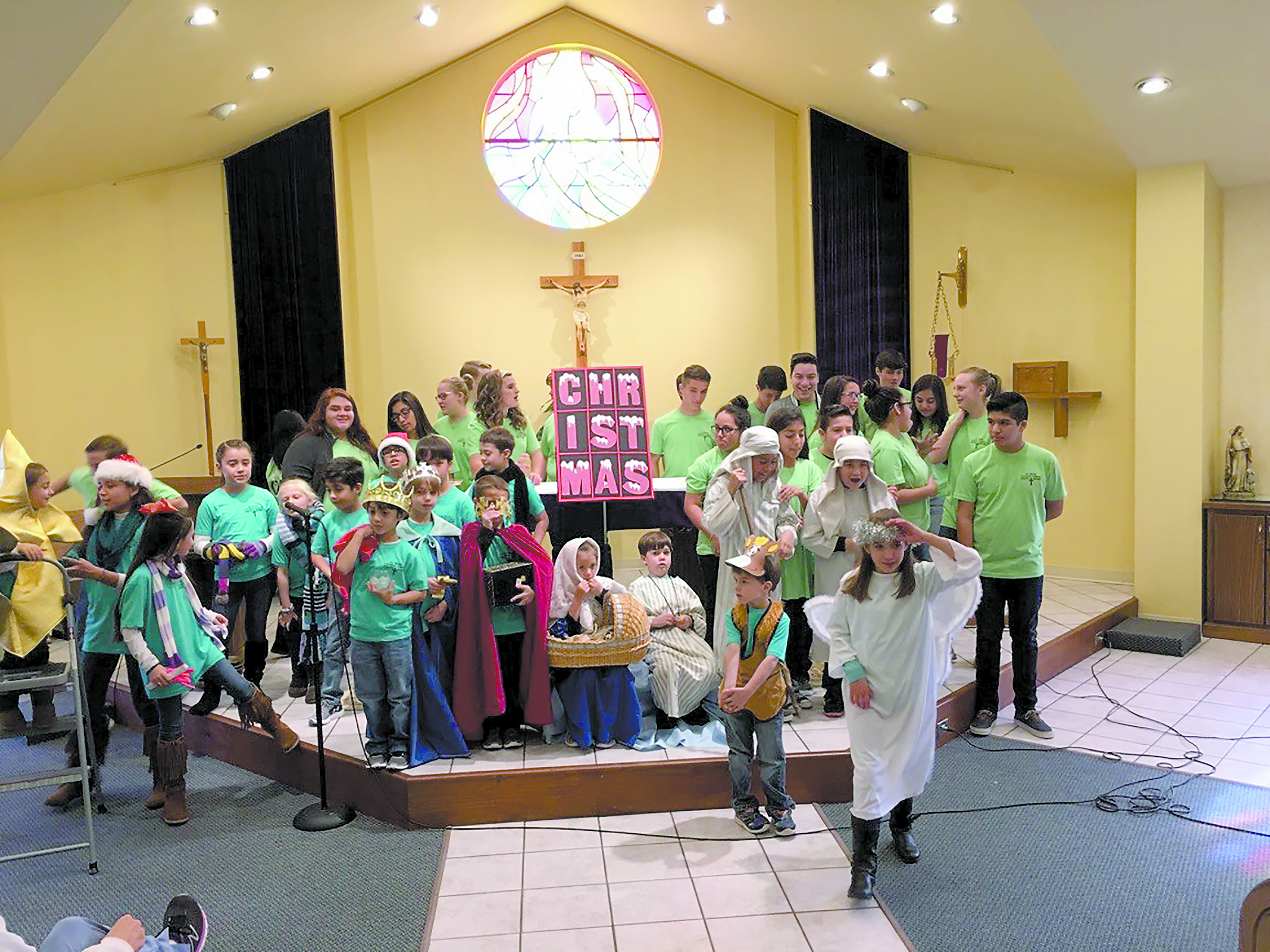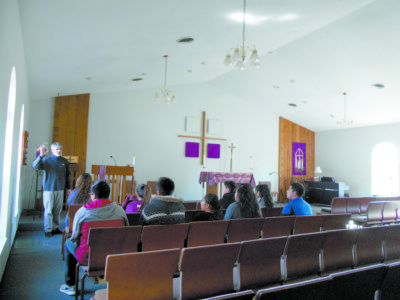By Karla Luke
JACKSON – Educators in the Diocese of Jackson’s Catholic schools and early learning centers, partner with families to form students in their faith. Catholic educators are entrusted by parents and families to provide a rich Catholic Christian environment by developing their own Catholic Identity, as well as, that of students and families. Catholic identity goes deeper than attending to the physical environment of the school or classroom by strategically placing pictures, statues and prayer tables. Don’t misunderstand. Those are extremely important, but they are only part of an ongoing development and formation of students in faith. Catholic educators use the tangible sacramentals (prayer tables, rosaries, holy cards, etc.) and traditions to cultivate the intangible: love for Jesus, love for others and a desire for service.
The Office of Catholic Education supports the development of Catholic identity each year with a theme, days of reflection and support materials. Each school integrates this in a way best suited to each learning community, but maintains the overall unity of the theme across the diocese. In the past, the school community of administrators, faculty and staff have accomplished this by studying Papal documents such as Evangelii Gaudium, the Bull of indiction of the Extraordinary Jubilee of Mercy as well as the U.S. Conference of Catholic Bishops’ Catholic Social Teachings and our the Diocese of Jackson’s Pastoral Priorities.
This year, the Office of Catholic Education has chosen to use the Beatitudes in the Gospel of Matthew to explore faith more deeply. The resource material for this study comes from Dan R. Ebener’s Blessings for Leaders: Leadership Wisdom from the Beatitudes (2012) and Pope Francis’s Gaudete et Exsultate. Administrators, teachers and staff explored it at gatherings at each school at which teachers wrote a prayer based on what they learned. The Office of Education will continue to offer support for the theme throughout the year.
The help of the Holy Spirit is essential in living out the Beatitudes because, to be quite honest, at first glance they contradict everything society declares right and desirable. As Christians strive for a deeper understanding, they find that Jesus is teaching what God means when he says in Lev 11:45, “Be holy because I am holy.” Pope Francis writes in Gaudete et Exsultate “The Beatitudes are like a Christian’s identity card. So, if anyone asks: ‘What must one do to be a good Christian?’ The answer is clear. We have to do, each in our own way, what Jesus told us in the Sermon on the Mount. In the Beatitudes, we find a portrait of the Master, which we are called to reflect in our daily lives.”
The Beatitudes are countercultural. This should not surprise anyone who has looked at Jesus’s life and teachings. He spent time with the poor, sick, lonely and tax collectors rather than hanging out with the “church” crowd. That’s just for starters. In the Sermon on the Mount, Jesus is teaching THE WAY. Where society urges people to spend their time and use their gifts to acquire wealth and power for security, Jesus says security should be in God alone for He alone can give eternal life, [Mt 5:3]. Society rewards ambition and reveres those in authority, but Jesus teaches that meekness and humility are desirable in God’s sight [Mt 5:5]. The world demands people grab short-lived rewards declaring “YOLO” (that’s “you only live once” for non-millennials). This can cause people to run away from problems or to turn a blind eye to sadness and suffering. Jesus teaches his followers to share in each other’s suffering. In this, Christians are able to show compassion, empathy and to comfort their brothers and sisters in Christ [Mt 5:4].
In Blessings for Leaders, Ebener equates each of the Beatitudes with character qualities necessary for good leadership. As principals lead teachers and teachers lead students, the diocesan leadership team thought this would be a meaningful approach to studying the Beatitudes and integrating leadership qualities with the Church’s teachings. Ebener’s book focuses on two major events in Mathew’s gospel: the great invitation and the great commission. In the great invitation, all are invited to become disciples of Christ; to come, see, learn and follow. In the great commission, all are challenged to become apostles of Christ; to go, tell, teach and lead. As teachers of any subject matter, educators must first learn the content before they can lead a class. Teachers are the ‘apostles’ of their classrooms and schools. They must use the knowledge of the Catholic faith, spirituality and faith experiences to call their students and families to a rich faith experience and a deeper relationship with Christ and the Church.
(Karla Luke is the assistant superintendent of Catholic schools for the diocese.)

